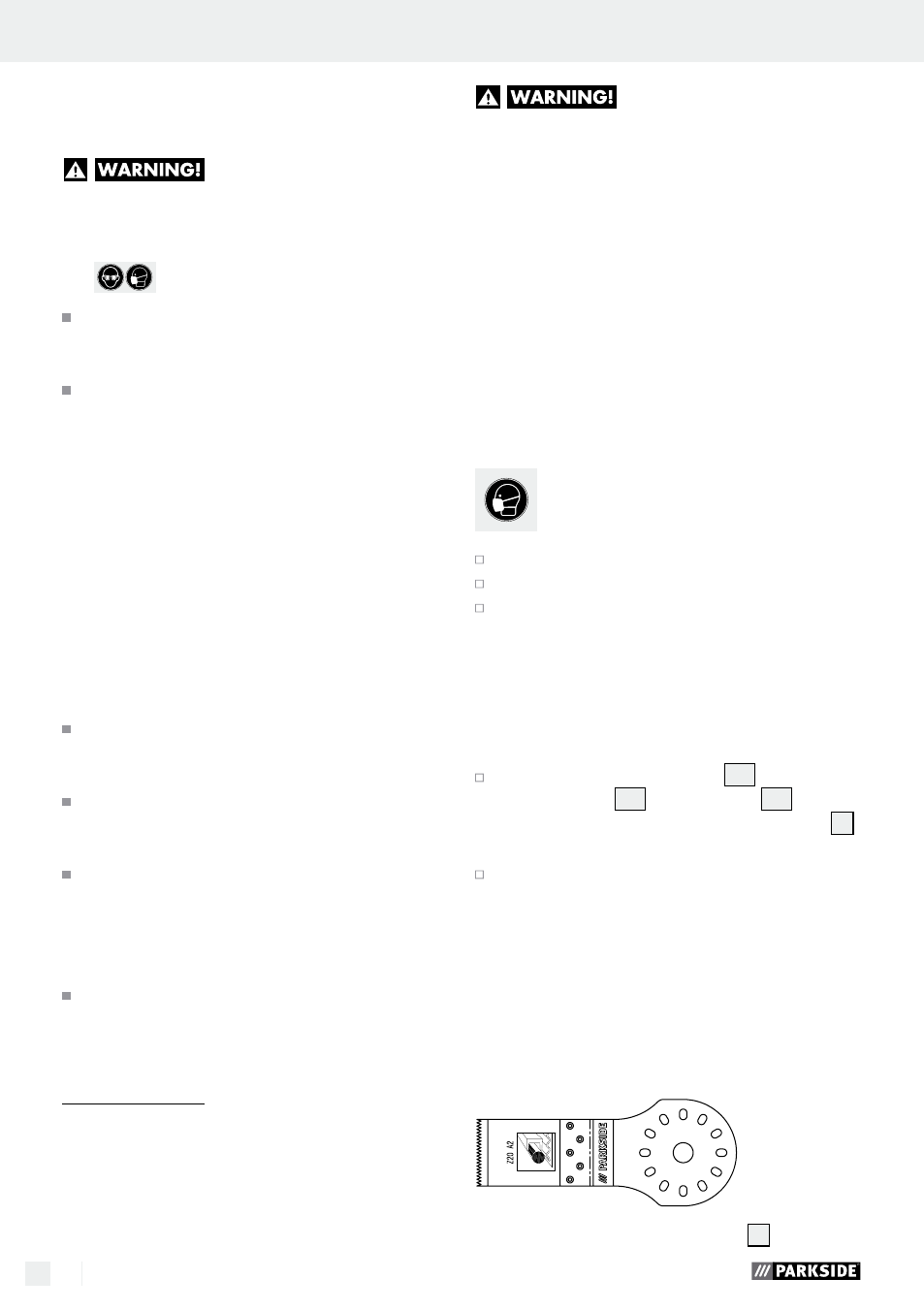Advice on use, Assembly, Vacuum extraction of dust / debris – Parkside PMFW 280 A2 Benutzerhandbuch
Seite 30: Connecting a vacuum dust extraction device, Selecting the right tool

30 GB
Assembly
General safety advice for electrical power tools / Assembly
device (RCD) with a maximum trip cur-
rent of 30 mA. If using an extension lead, al-
ways use one that is approved for outdoor use.
Any harmful / noxious dusts
generated from sanding represent a risk to the
health of the person operating the device and
to anyone near the work area.
Wear safety glasses and a
dust protection mask!
Ensure that there is adequate ventila-
tion when working on plastic, paint,
varnish etc.
Do not soak the materials or the sur-
face you are about to work on with
liquids containing solvents.
Q
Advice on use
Principle of operation:
The oscillating drive causes the attached tool to vi-
brate backwards and forwards up to 21000 times
per minute. This means the tool can produce precise
work in the tightest of spaces.
Sawing / cutting:
Use only undamaged, defect-free saw blades.
Distorted, blunt or otherwise damaged saw
blades could break.
When sawing lightweight building materials,
observe the statutory requirements and the
manufacturer’s recommendations.
Use the device in plunge sawing mode on soft
materials such as wood, gypsum plaster board
etc. only!
Sanding:
Ensure that you use even contact pressure. This
will increase sanding sheet life.
Q
Assembly
Q
Vacuum extraction of
dust / debris
Do not use the tool on materials containing asbestos.
Asbestos is a known carcinogen.
DANGER OF FIRE! There is
the danger of fire when working with electrical
devices that have a dust box or can be connected
to a vacuum cleaner. Under certain conditions the
wood dust in the dust extraction bag (or in the vac-
uum‘s dust bag) may ignite, e.g. as a result of flying
sparks generated when abrading metals or metal
objects left in wood. This can happen particularly if
the wood dust is mixed with paint residue or other
chemicals and the abraded particles are hot from
prolonged abrasion. Therefore you must empty the
device’s dust collection box and the vacuum clean-
er’s dust bag before taking a break or stopping
work and always avoid overheating of the abrad-
ed particles and the device.
Wear a dust mask!
Always use vacuum dust extraction.
Ensure that your working area is well ventilated.
Observe the regulations applicable in your
country for the materials you are working on.
Q
Connecting a vacuum
dust extraction device
Push the housing attachment
13 a
, vacuum dust
extraction duct
13 b
, ring connector
13 c
together.
Place the vacuum dust extraction assembly
13
on to the device (see Fig. H).
Push the hose of an approved dust extraction
equipment (e.g. a workshop vacuum cleaner)
on to the adapter for external exhaust suction.
Q
Selecting the right tool
Note: The attachment system with easy tool ex-
change is suitable for popular accessories.
Plunge saw blade (20 mm) Z20 A2
5